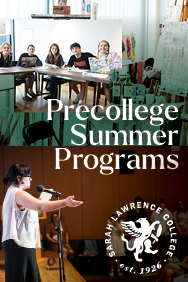Cardinal Dolan Delivers Jacobson Memorial Lecture at Concordia College; Compares Three Recent Popes

Jun. 4, 2014: "We waited almost a year for this day to finally arrive," said Concordia College President Dr. Viji George in welcoming Timothy Cardinal Dolan, archbishop of New York, to the campus. "Our patience has been richly rewarded."
Cardinal Dolan delivered the Jacobson Global Lecture on Monday evening, June 2, at Concordia College's Meyer Athletic Center to a near-capacity audience.
Dolan built his address around the human characteristics of soul, mind, and heart as embodied and exemplified by the Catholic Church's three most recent popes--John Paul II, Benedict XVI, and Francis.
"It came across me that a great way to approach the last three popes," Dolan said, "would be to claim that Pope John Paul II was the soul of the church. Pope Benedict XVI, now Pope Emeritus, was the mind of the church. And now Pope Francis is the heart of the church."
In a world exhausted by upheaval after two world wars and totalitarian regimes in Pope John Paul's native Poland, and in the Catholic Church, exhausted and dispirited by the turmoil of the Second Vatican Council in the early 1960s, Dolan said, John Paul's mission was to recover the primacy of the spiritual.
Dolan described John Paul as a mystic despite having lost everything of his life--his family and even his native Poland, which was "wiped off the map" and decimated after both major world wars.
Dolan credited John Paul with opening the eyes of his fellow countrymen on a visit to Poland in 1979.
"He spoke about the dignity of the person and the sanctity of human life," Dolan noted. "People began to realize they were not just an isolated person in a machine or a collective."
The most profound example, Dolan said, of John Paul's restoration of the soul of the church was allowing the world to witness the sacredness of human life through his own death.
Pope Benedict XVI, while stressing the mind and the intellect, reminded the world, according to Dolan, that reason and faith are allies rather than enemies. Benedict talked of an interior ecology, a system of laws and balance inside humans that must be protected, just as the ecology of the natural world must be maintained.
"There is an interior ecology that applies to our whole moral and ethical structure," Dolan stated, "a certain coherence, structure, and law of nature that must be discerned and obeyed."
Cardinal Dolan expressed special feeling for Pope Francis. "I feel close to him because I was part of the conclave that elected him," Dolan said.
Dolan noted that he and his fellow cardinals knew Francis was saying something profound when he chose to be called after Francis of Assisi, "the poor man of Italy."
"It began to dawn on us," Dolan said, "that we had a very simple and sincere man who led from the heart."
Pope Francis reminds us, Dolan stated, that the church is not an impersonal institution, that the church does not live by an agenda. The church is a family subject to the same dysfunction that visits any family.
"We live in a culture that doesn't have trouble with God, it has a lot of trouble with the church," Dolan said. "Francis is not afraid to show the sinful side of the church. He says we are imperfect."
Dolan described Francis's mission as recovering the heart of the church through tenderness in thought and action, through simple acts of courtesy that have become "tragically extraordinary" today.
Portrait artist Flladi Kulla presented Cardinal Dolan with a portrait he painted of the cardinal. Kulla, a Concordia College graduate, is also a graphic artist and works in the college's marketing department.
Since 1990, the annual Jacobson Global Lecture, honoring the late David C. Jacobson, former provost and professor of philosophy at Concordia College, has presented leading speakers reflecting Dr. Jacobson's interests in world ideologies, religions, history, and politics.
Pictured here: Timothy Cardinal Dolan with Concordia President Viji George at the Jacobson Global Lecture.
Photo courtesy Ellen de Saint Phalle, Director of Community Relations, Concordia College
Government & History Directory
Bronxville is a quaint village (one square mile) located just 16 miles north of midtown Manhattan (roughly 30 minutes on the train) and has a population of approximately 6,500. It is known as a premier community with an excellent public school (K-12) and easy access to Manhattan. Bronxville offers many amenities including an attractive business district, a hospital (Lawrence Hospital), public paddle and tennis courts, fine dining at local restaurants, two private country clubs and a community library.
While the earliest settlers of Bronxville date back to the first half of the 18th century, the history of the modern suburb of Bronxville began in 1890 when William Van Duzer Lawrence purchased a farm and commissioned the architect, William A. Bates, to design a planned community of houses for well-known artists and professionals that became a thriving art colony. This community, now called Lawrence Park, is listed on the National register of Historic Places and many of the homes still have artists’ studios. A neighborhood association within Lawrence Park called “The Hilltop Association” keeps this heritage alive with art shows and other events for neighbors.
Bronxville offers many charming neighborhoods as well as a variety of living options for residents including single family homes, town houses, cooperatives and condominiums. One of the chief benefits of living in “the village” is that your children can attend the Bronxville School.
The Bronxville postal zone (10708, known as “Bronxville PO”) includes the village of Bronxville as well as the Chester Heights section of Eastchester, parts of Tuckahoe and the Lawrence Park West, Cedar Knolls, Armour Villa and Longvale sections of Yonkers. Many of these areas have their own distinct character. For instance, the Armour Villa section has many historic homes and even has its own newsletter called “The Villa Voice” which reports on neighborhood news.
Link to Village of Bronxville One Square Mile Monthly Newsletter
Village of Bronxville Administrative Offices
337-6500
Open 9:00am - 4pm excluding holidays and weekends
Bronxville Police Department
337-0500
Open 24 hours
Bronxville Parking Violations
337-2024
Open 9:00am - 4pm excluding holidays and weekends
Bronxville Fire Deparment
793-6400















